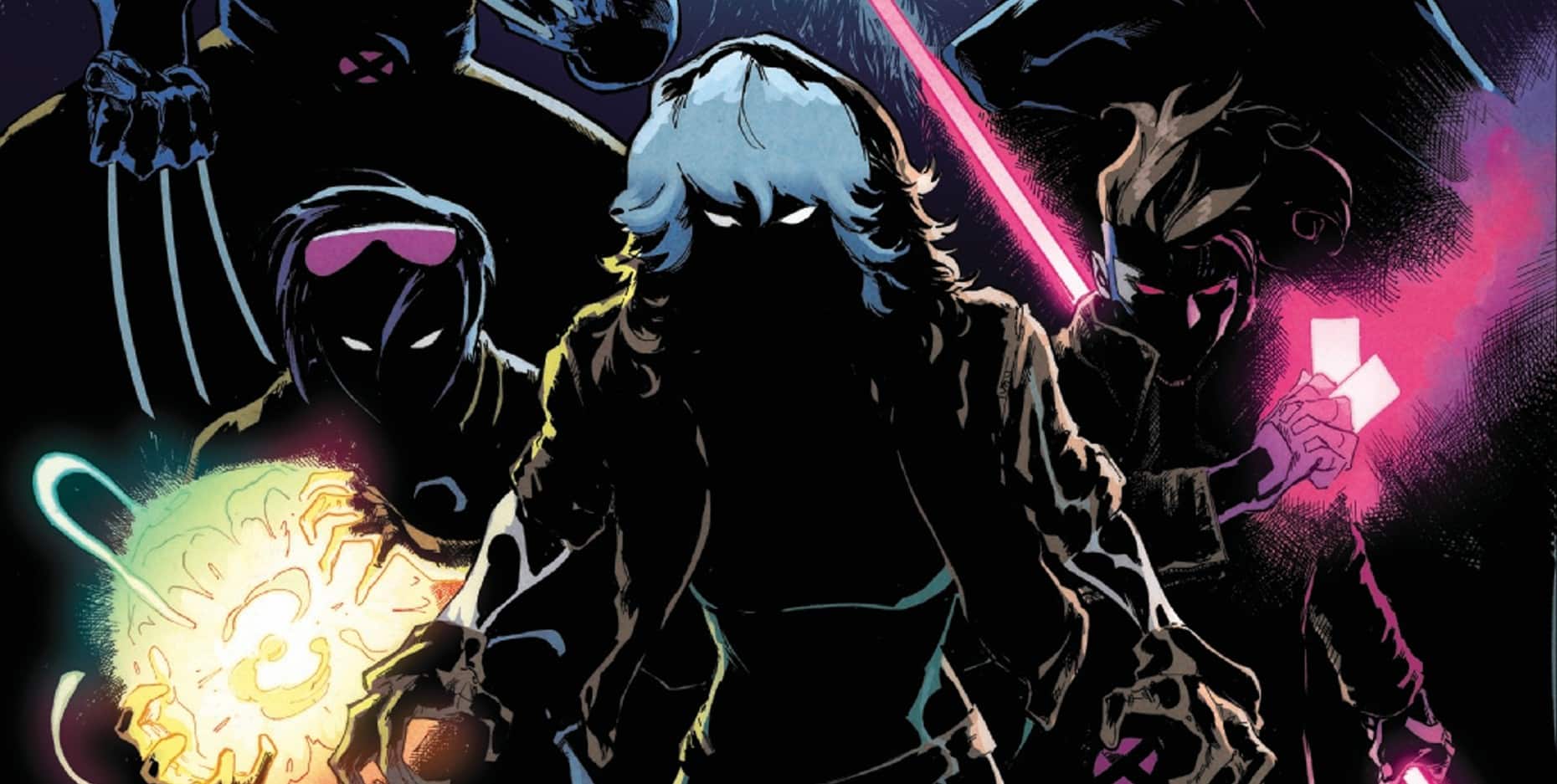Does anyone really love Angel? Does anyone, within his Marvel universe, even like him? Who’s asking? It’s Ann Nocenti, in Giant-Size X-Men #1 (2024). Written by Nocenti, drawn by Lee Ferguson, colored by KJ Díaz and lettered by Cory Petit.
This beautiful one-shot pops into the Fall of X era at just the right time, which is to say it has almost nothing to do with Fall of X: those of us still in mourning for Krakoa, waiting to see what the next era brings, might be tempted to take a look.
We should give in to temptation. It’s vaunted 1980s X-writer (and editor and Daredevil genius) Ann Nocenti, which means a psychologically intense story, mental health challenges, maybe a dreamscape; the mean streets of New York City, and also its fine streets; tenuous or absent connections to current X-continuity, which at the moment comes as a relief; and tight focus on a legacy character, in this case Warren Worthington III, who hasn’t had this kind of treatment for a while. Poor guy. But also–it’s the one consistent aspect he’s had for 50 years–rich guy.

We open with a modern-day Warren’s shirtless, winged descent into a snowy alley, where some kids reject him (“mutants aren’t cool”) and one wants to be him: the mutant metaphor has entered the room. We then switch scenes to an urban aerie, perhaps a private club, where Angel’s Defenders-era gf Candy Southern greets him dressed as Silver Age Jean Grey. Also present, if not accounted for, are Betsy Braddock, another Angel ex, Wanda Maximoff, and Jean as the Phoenix. Also everybody has wings, white feathery eagle numbers like Warren’s own, though some look beat-up, or decayed, or in need of veterinary care.Someone who looks like Rachel Summers offers Angel a chicken wing: “It’s called dark humor, dude,” she says. Then Jean Grey in green Phoenix gear, and Scott, and Logan show up, and tell him that thanks for the failure of X-Corp and the collapse of mutant-made medications, he’s “putting all mutants in danger.” Everything’s fire; everyone’s got it in for him, and the “only way out of this jam is to tell the truth, bub.”
Yes, we’re in a psychodrama, a dream sequence or something like it. This Is Your Life, Warren Worthington, and Ann Nocenti will plumb your psychic depths. She’s got exactly the help she needs from Ferguson and Díaz, whose compositions manage dynamic lines and shifting perspectives in spite of the small (for modern times) panels (up to eight per page). We watch our retro Warren change costumes, psycho-magically, mid-conversion and midair, undergoing his own involuntary Eras tour, from shirtless and feather-bedecked to magenta and metal and then to the halo-themed costumes of his Defenders and early Bronze Age days. He’s in flight from himself, and he’s trying to figure out whether anyone likes him or loves him or wants him for anything except his money. His vision of Cyclops says otherwise: “Love you? Back when Xavier’s School for Mutants was just a start-up, we needed cash. We needed an angel investor.” Otherwise none of his so-called friends–or so he fears–would give him the time of day. Especially given his history of turning evil. (Neither here nor anywhere in the comic do we see the grotesque transformations that Angel has undergone recently, in the Fall of X era: apparently, as with other Marvel one-shots that bring back 1980s creators, Nocenti has set this story sometime in the past, perhaps in the era of Blue and Gold.)
Nocenti has written Warren into his own self-hating corner, his own private Hell. And she’s got an in-universe partner in doing it: an imitator and rival of Arcade with a neat Afro, a long coat, and round purple spectacles, name of Maze, who has built a deceptive private club in order to conduct the comic-book equivalent of intense, sped-up psychoanalysis. Angel’s stuck in her club, and in his dreamscapes, until he tells him–and us–“the truth: “You’re not in Hell, Angel. It’s just a game.”

It’s like Murderworld, except that the way to get out involves learning, or telling, or admitting, “the truth,” and seeing “the power of your subconscious.” So Maze explains in a triad of long, thin panels whose use of perspective– as the kids say these days– slaps: Angel goes up, on a pedestal, but cannot fly, and our point of view sinks down until we’re seeing him, uneasily, from far below. Then we look down– in soft, almost watercolor-ish inks and washes– on a scene from Warren’s own teen years, hanging with future frenemy Cameron Hodge, who tells him that his heroic aspirations amount to simple self-deception. Warren, like Cameron– according to Cameron– will always represent the selfish, idle rich: “I know that game. Do just enough good to give the world the illusion of a benevolent billionaire hero. Great PR, great tax writeoff.” It’s at that point, after Cameron insults him, that Warren’s wings literally begin to emerge.
Cameron, as X-fans know, is a jerk, but he’s a jerk who knows Warren well, well enough to push Warren’s worst buttons, especially in a confabulation or a dream. So does Maze, who seems to have read lots of X-comics. Angel himself, meanwhile, has read his Ibsen: “Rob the average man of his life-illusion, and you rob him of his happiness at the same stroke.” That’s the great Norwegian. Here’s the great X-scribe, with words in the mouth of Angel: “You call it self-delusion. I call it survival. People rewrite their own narratives to keep despair at bay. That doesn’t make us liars.”
Angel explains as much to Maze, and to us, on an emerald-green background of remembered pals from recent X-eras: bearded Colossus, big-helmet Professor X, Illyana Rasputina in black Bachalo costume. Each of us needs an imaginative space where we can try to become our best selves, even if that space means keeping up fictions. In a quiet full-page spread Maze semi-accepts it: “You won. You can live.” She won’t tear down his dreams any more.
In absolutely unrelated news, I miss Krakoa.
The physical comic–so that it can be “Giant-Sized”– reprints a delightful story first published in Marvel Team-Up 68 (1977), in which Angel visits a disco with the Thing and gets kidnapped by yet another Arcade imitator. This time it’s Toad, and Angel treats him with a humanity usually lacking in the X-Men’s relations with Mortimer: he uses his cash to do what Doreen Green would have done, had she existed way back then, and sets him up with his own amusement park Toadworld, in which he can run the show and nobody gets murdered. Maybe he can open it again.
Buy Giant-Size X-Men #1 here. (Disclaimer: As an Amazon Associate, ComicsXF may earn from qualifying purchases.)
Stephanie Burt is Professor of English at Harvard. Her podcast about superhero role playing games is Team-Up Moves, with Fiona Hopkins; her latest book of poems is We Are Mermaids. Her nose still hurts from that thing with the gate.






